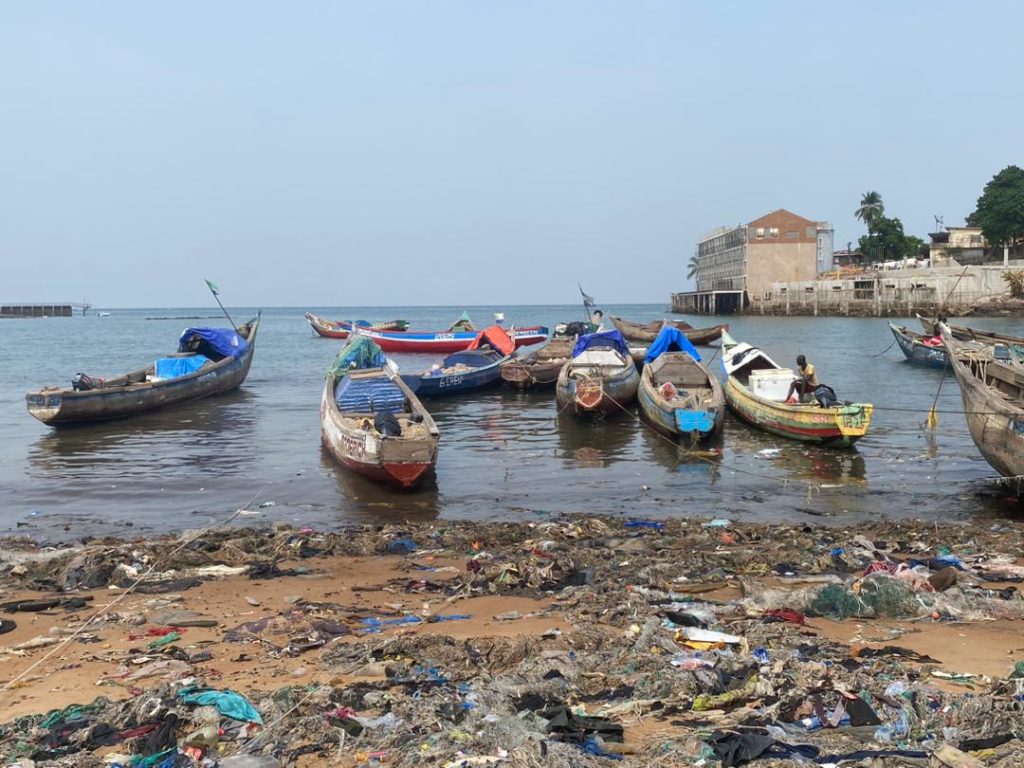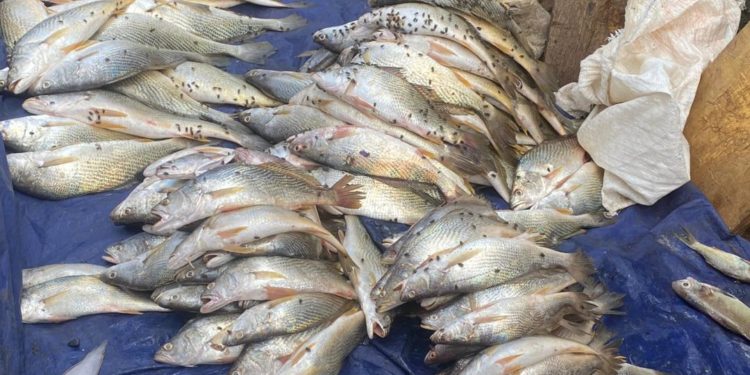By Emma Black
Sierra Leone, renowned for its rich marine resources, is facing tensions between fishermen and the government over new restrictions designed to address safety and environmental concerns. The policy prohibits fishing boats from departing after 7:00 PM and requires them to return only after 7:30 AM. While the government defends this rule as essential for security and sustainability, fishing communities across the country are grappling with its impact on their livelihoods.
Fishermen in Aberdeen, Tombo, and Bonthe express frustration with the regulation. According to Sayoh Kamara, a boat owner from Aberdeen, the timing disrupts their traditional fishing routines, particularly for those targeting specific fish species that are active during the night. “We used to go at 9 or 10 PM and return in the morning. Now we have to leave earlier, which reduces our catch and compromises the quality of the fish due to lack of proper storage facilities like ice,” he explained.
For those operating larger boats on multi-day expeditions, the rule exacerbates challenges. Kamara highlighted that snapper, a high-demand species, often spoils because they are forced to wait offshore until morning before unloading their catch.
Alpha Kanu, a veteran fisherman from Tombo, described the policy as burdensome. “We pay all our dues, including licenses and life jackets, but the military and police stationed at fishing hubs demand bribes and confiscate fish if boats return a little past 7 PM.”
Meanwhile, Fatmata Bongura, a fisherwoman and chairlady at Aberdeen, acknowledged the policy’s safety benefits but lamented the lack of resources to comply effectively. She pointed out that many boats lack proper lighting, making them vulnerable to accidents and confrontations with industrial vessels or illegal fishing boats, often from neighboring Guinea or Senegal.
The ripple effects of the policy extend to fish vendors like Kadiatu Kallon, who now struggles to procure fish. “I’ve shifted from selling local snacks to fish because of the season, but with boats delayed, I spend more on transport and return empty-handed,” she shared.

Edward Kalone, Executive Officer of the Coastal Environment Watch Organization, raised alarms about illegal, unregulated, and unreported (IUU) fishing. He noted that IUU boats frequently enter Sierra Leone’s waters at night, depleting fish stocks and sometimes clashing violently with local fishermen. These industrial trawlers use destructive fishing nets, killing juvenile fish and violating sustainable fishing practices.
Max Kannah, the Public Relations Officer at the Ministry of Fisheries and Marine Resources, stated that the ministry is aware of the challenges and plans to investigate the complaints. He emphasized the government’s commitment to balancing security, sustainability, and the livelihoods of fishing communities.
Dr. Idrissa Mamoud Sheriff – A Senior Lecturer at Fourah Bay College, University of Sierra Leone, he has expertise in fisheries science and coastal resource management. His work often focuses on sustainable practices and the socio-economic aspects of fisheries in Sierra Leone.
Dr. Idrisa Said to address the concerns, the government should, and provide financial support for ice storage and boat lighting, and enforce regulations uniformly to curb corruption among law enforcement, and the enhance monitoring and protection against illegal fishing, and we engage communities in crafting policies that balance safety with economic needs.
For now, the 7 PM to 7:30 AM fishing ban remains a source of contention, highlighting the delicate balance between sustainability, security, and the livelihoods of Sierra Leone’s fishing communities.






















